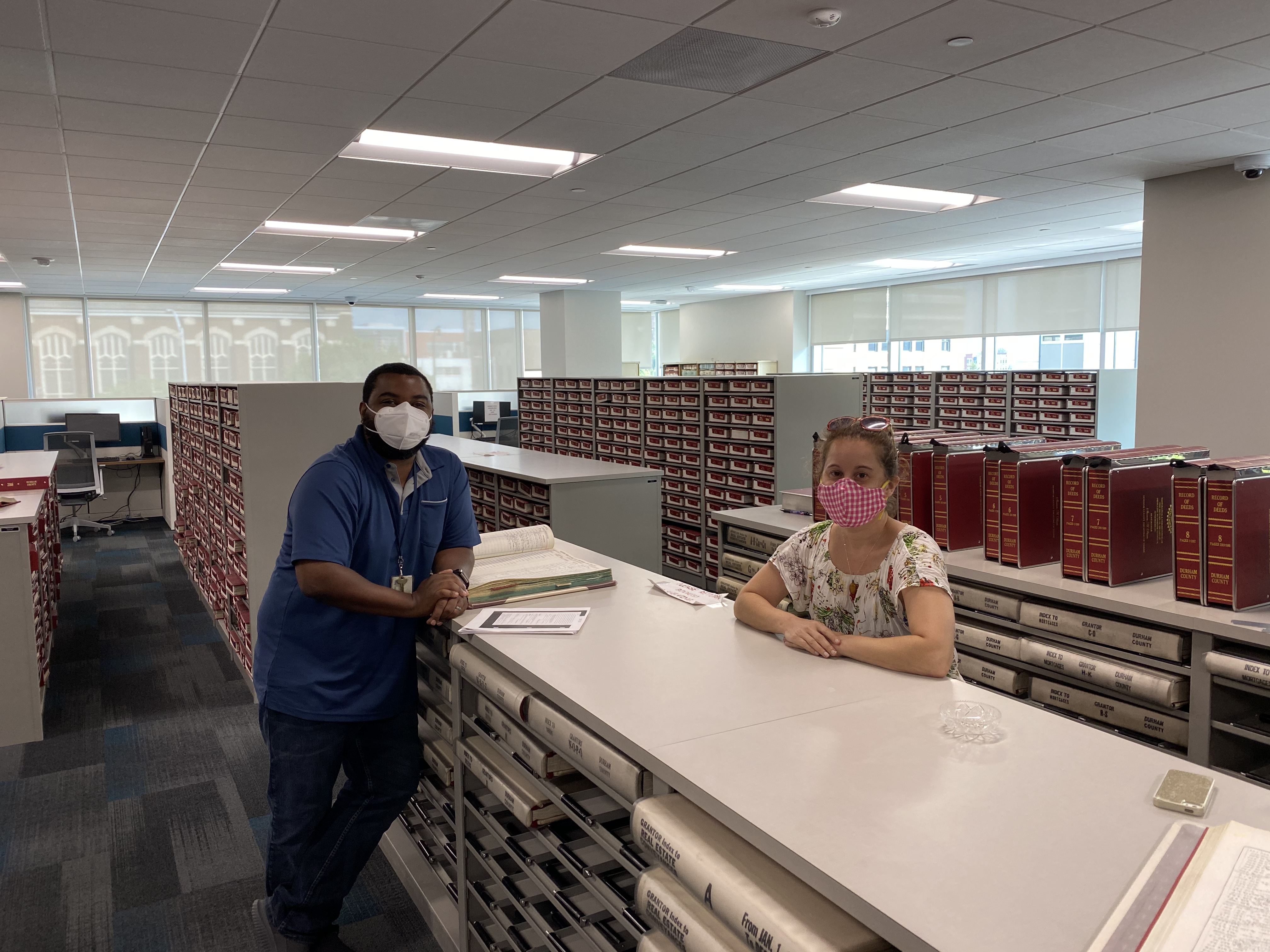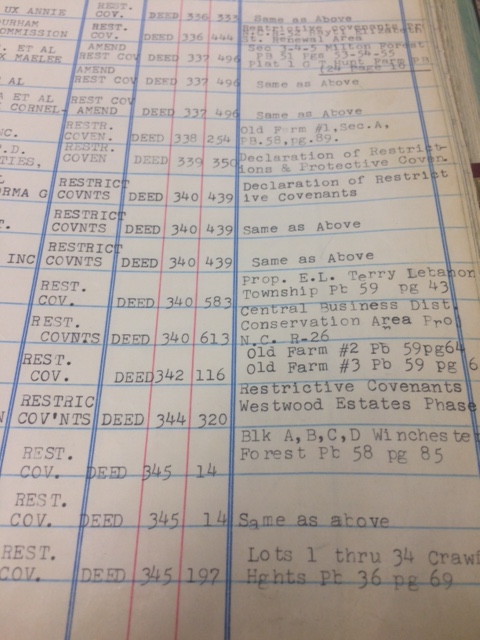Project Updates for May/June 2020
In February of 2020, we were excited to learn that our project had been selected to receive a Civic Switchboard Field Project award! This was wonderful news as we had assembled a wonderful project team bringing knowledge, enthusiasm, and determination. Everyone was eager to contribute to the goals laid out in the project application. You can learn more about the members of our project team and the award here.
Enthusiasm and determination for this project was no short feat considering the timing of our award. In March, Durham County was effectively shut down first due to a malware attack and then followed by the COVID-19 pandemic. Nevertheless, the project team continued to meet, sketch out plans, and make revisions based on these extenuating factors.

In our original application to the Civic Switchboard Field Project, the project focused work around two in-person events: (1) a community hackathon where participants would transcribe selected deeds with racial covenant clauses and; (2) a public workshop discussing what role the deeds played in the larger context of Durham history, with an emphasis on the contemporary impact of exclusionary zoning on Durham neighborhoods. Because of the pandemic, we revised our project goals in April and May to move both workshops to an online setting.
The first step in the project was to gain access to the property deeds for Durham County and start building out a collection of materials. Luckily, the County had undertaken a significant scanning project to digitize deeds and make them searchable through in-house workstation and an online portal. However, because of both the malware attack and the pandemic, the workstations and database were taken offline at the same time when we were getting ready to start the project. Non-essential travel prohibited the project team from visiting the Registrar, who had since created an external drive with PDF versions of all deeds with clauses in Durham county from 1884 to 1962. Once it became safer to move around the city of Durham, we were able to obtain the hard drive. We loaded these deeds into an AWS server to begin exploration.
At this stage in the project, the team had to make some decisions related to our collecting goals. First, we needed to figure out how to identify and flag deeds containing racial covenant clauses, since no formal method existed.

All deeds with clauses were indexed (see above), but there was currently no method for finding deeds with specific language restricting use or occupancy of properties by non-white entities. We also needed to decide whether to include the recorded deeds written after the 1948 Shelley vs Kraemer ruling prohibiting states from legally enforcing racially restrictive covenants. For example, Duke University was still creating property deeds with racial covenant clauses well into the 1960s. Finally, many early deeds (and corresponding entries in the index book) were handwritten and needed to be transcribed.
In our next project update blog post, we’ll review the decisions we made and describe the work undertaken in July/August 2020. Stay tuned!